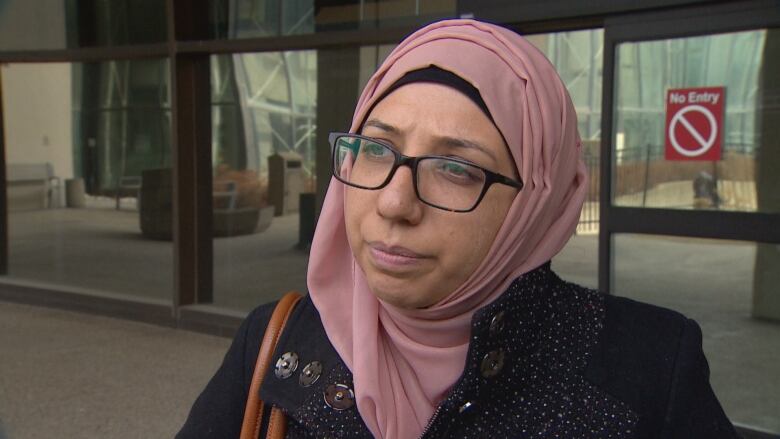Edmonton's new mental health court offers real-time help for accused
Forensic psychiatrist Peter Rodd says a new mental health court will speed up court procedures

A handcuffed man accused of aggravated assault looks around the Edmonton courtroom in distress.
"Are you OK," the sheriff asks, leaning in. "Do you want to go back in the room and take a break?"
Assistant chief judge Larry Anderson chimes in: "Are you OK? Are you comfortable there?"
In most courtrooms, disruptions aren't tolerated. But this isn't any courtroom Wednesday was the debut of a new mental health court in Edmonton.
While a typical docket court deals with dozens of matters in a morning, this court, with a dedicated forensic psychiatrist, addressed 22 cases.
A social worker sat in while duty counsel interviewed each accused, to make sure they were connected with needed resources, whether that be a doctor or housing and income supports.
"We did see that things were a lot slower, we took some breaks," Amna Qureshi, a lawyer with Legal Aid Alberta, said in an interview following the proceedings. "And the breaks allowed the other players in the process, the team really, to work with those people, to talk to them, to see how they could perhaps assist in a bail plan that would be realistic for that person to comply with."
Qureshi is one of three duty counsels and part of a largerteam working at the mental health court, which will run on Monday, Wednesday and Friday.
The model, which is used in other Canadian cities,involves a collaborative approach between judges, lawyers, and health-care professionals who are in the courtroom.
"They will get the help they need to stop being in conflict with the law I think really that's the ultimate hope," saidQureshi, adding it will also decrease the load in other courtrooms.
Psychiatric expertise in real time

At one point, court took an hour-long recess so Rodd could assess an accused on the fly even conducting two of those assessments via closed-circuit television.
"The level of involvement is a little bit different because we're actually providing that expertise in real time on an ongoing basis," Rodd told CBC News afterwards.
He said in conventional courtrooms, one of the causes of prolonged delaysis a lack of such information or expertise available to the court in real time.
"I think that this is really one of the key parts of this initiative, is to provide that information so that the court can make an informed decision sooner rather than having to wait for that information to make its way to the court," Rodd said.
The court is up and running thanks to the efforts of Anderson and provincial court judge Rene Cochard.
The majority of accused participate on a voluntary basis, though some will arrive because of assessments ordered by a judge, such as whether they're fit to stand trial.
Referral basis
Most of those who qualify for mental health court arrive on a referral basis.Qureshisaid they are identified by lawyers, judges, police and remand centre staff as possibly having mental health issues at play.
On Wednesday, court heard one man was referred after he began behaving oddly and wouldn't speak during a pretrial conference.
In another appearanceby closed-circuit television, a woman asked the judge: "Can you take me out of seg for my mental health? Can I go to Alberta Hospital for a while?"
Anderson, who frequently took time to make sure the accused understood what was happening,explained decisions around segregation weren't inhis control. Butafter consulting with those in the room, he managed toshorten the time until the woman's next appearance.
Throughout thesession, Anderson occasionally paused to get input from his team on what might work best, since the court is only beginning to establish its procedures.
"We're still waiting to see what the outcomes will be," said Justice Minister Kathleen Ganley Wednesday. "But I think it's great to see the courts making these efforts to streamline processes."












_(720p).jpg)


 OFFICIAL HD MUSIC VIDEO.jpg)
.jpg)



























































































